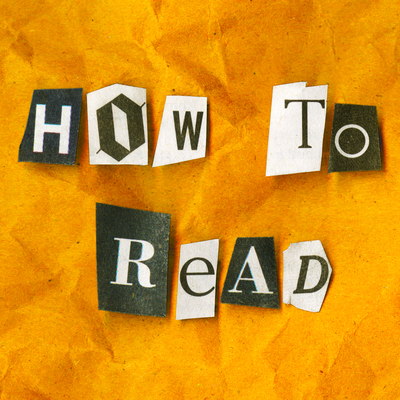Life experiences can transform us in many ways, and Laurie Paul wants us to appreciate how experiencing works of art can be powerfully transformative too. Works of fiction can change how we understand our own lives going forwards, or experiences we’ve already had. But art doesn’t always transform us for the better – when we truly open ourselves up to transformation, we can’t know in advance, or ultimately control, what the results will be.
How To Read Posts
We tend to have a visceral response to someone we think is dirty. But Stephanie Newell argues that judging other people as dirty is more in our minds than it is about medical reality. Through examples ranging from the travel diaries of colonial British traders in West Africa to the surprising ways Nigerian popular culture makes comedy out of disease, Stephanie shows how judging people to be dirty always involves a failure to understand them – but sometimes can also spark empathy.
After we finish reading a book, our memories of it quickly fade and can even get distorted. Andrew Elfenbein has studied how the things we read get transformed in memory. What we remember may diverge from what’s in the book, but that doesn’t mean we’re sloppy readers – we’re actually using highly sophisticated skills without even noticing. By understanding this process we can better appreciate how books live on in our minds long after we’ve read them.
It might seem obvious that it’s good to read in ways that are literary, critical and modern. But Michael Allan argues that viewing certain ways of reading as literary, critical and modern also involves constructing a stereotype of a bad reader who is unliterary, uncritical and backwards. In colonial Egypt, British authorities relied on stereotypes of Islamic reading practices to treat local people as merely memorising and repeating what they read. As a result, local people were considered incapable of thinking critically and of holding valid political opinions.
What do we want when we revisit a beloved story? Sarah Chihaya suggests we’re drawn back by contradictory desires: on the one hand we want to relive what we experienced the first time, but we also want something fresh and new. From recent movie sequels and remakes to the experimental novel Life After Life, Sarah shows how revisiting familiar stories can be a cynical ploy to make money, but can also be an under-appreciated source of artistic inspiration.
When we think about the generation before us, we might feel that their cultural touchstones aren’t relevant today. But Tom Mole argues that the literature of the past only survives because the next generation find new ways to make it relevant. In the Victorian era, new illustrations for the previous generation’s poetry helped update the image of writers like Byron and Wordsworth in ways they couldn’t even have imagined.
The basic story of Adam and Eve is that Eve was tempted by a serpent, ate the forbidden fruit and thus caused humans to be kicked out of Paradise. But does she really deserve the blame? Stephen Greenblatt says this question isn’t a new one – Eve has had her defenders from the very start. From early Jewish commentaries to John Milton’s epic poem Paradise Lost, Stephen shows how Eve’s story has always been open to re-interpretation. Her story has inspired not only blame, but also understanding – and even praise.
Some academics think that reading a book just to identify with a character is self-centred and shallow. When you’re only reading for characters you can identify with, you’re projecting yourself onto the book. But Merve Emre thinks that’s unfair. Far from being shallow, who readers do and don’t identify with is a complex and nuanced question. Using examples from Freud to Fifty Shades of Grey, Merve shows how identifying with characters can reshape our sense of self and help us better understand the society we live in.
We tend to think of literature as something that’s written down. But Martin Puchner is interested in cases where the spoken word precedes, coexists with or even comes after the written word. From Ancient Greece to medieval Mali to Stalinist Russia, he explores why certain literary artists have preferred speech to writing. By understanding why and when these artists relied on speech, Martin argues that we can better appreciate their written works too.
